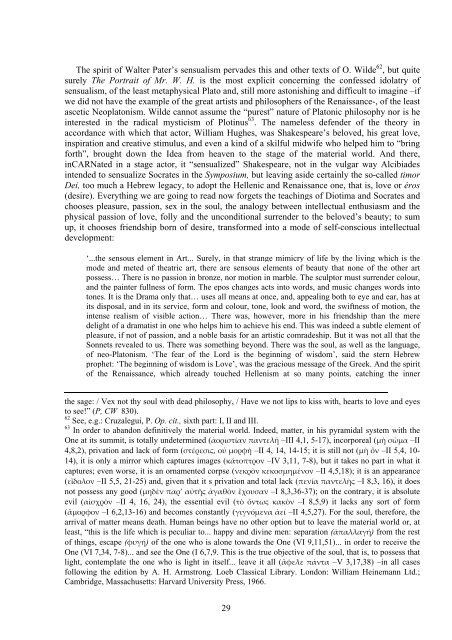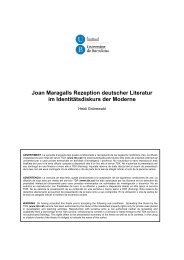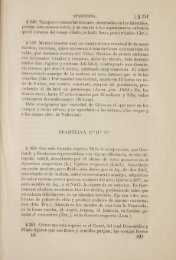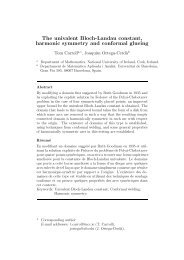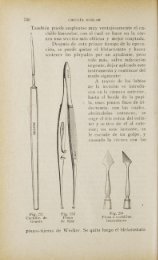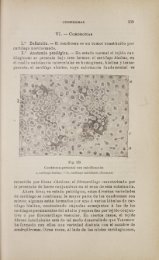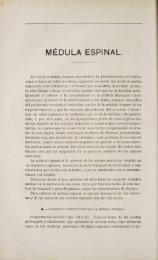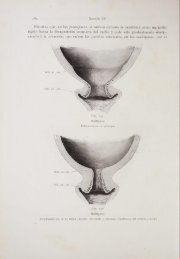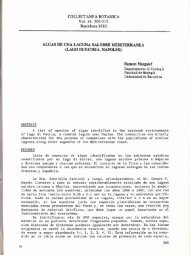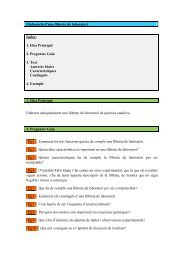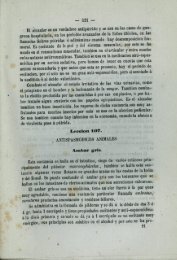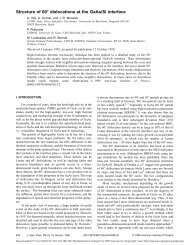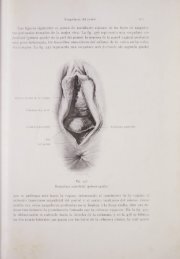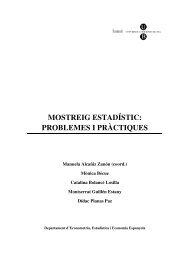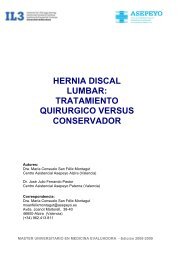Wilde Parsa ang_12080.pdf - Dipòsit Digital de la UB - Universitat ...
Wilde Parsa ang_12080.pdf - Dipòsit Digital de la UB - Universitat ...
Wilde Parsa ang_12080.pdf - Dipòsit Digital de la UB - Universitat ...
You also want an ePaper? Increase the reach of your titles
YUMPU automatically turns print PDFs into web optimized ePapers that Google loves.
The spirit of Walter Pater’s sensualism perva<strong>de</strong>s this and other texts of O. <strong>Wil<strong>de</strong></strong> 62 , but quite<br />
surely The Portrait of Mr. W. H. is the most explicit concerning the confessed ido<strong>la</strong>try of<br />
sensualism, of the least metaphysical P<strong>la</strong>to and, still more astonishing and difficult to imagine –if<br />
we did not have the example of the great artists and philosophers of the Renaissance-, of the least<br />
ascetic Neop<strong>la</strong>tonism. <strong>Wil<strong>de</strong></strong> cannot assume the “purest” nature of P<strong>la</strong>tonic philosophy nor is he<br />
interested in the radical mysticism of Plotinus 63 . The nameless <strong>de</strong>fen<strong>de</strong>r of the theory in<br />
accordance with which that actor, William Hughes, was Shakespeare’s beloved, his great love,<br />
inspiration and creative stimulus, and even a kind of a skilful midwife who helped him to “bring<br />
forth”, brought down the I<strong>de</strong>a from heaven to the stage of the material world. And there,<br />
inCARNated in a stage actor, it “sensualized” Shakespeare, not in the vulgar way Alcibia<strong>de</strong>s<br />
inten<strong>de</strong>d to sensualize Socrates in the Symposium, but leaving asi<strong>de</strong> certainly the so-called timor<br />
Dei, too much a Hebrew legacy, to adopt the Hellenic and Renaissance one, that is, love or éros<br />
(<strong>de</strong>sire). Everything we are going to read now forgets the teachings of Diotima and Socrates and<br />
chooses pleasure, passion, sex in the soul, the analogy between intellectual enthusiasm and the<br />
physical passion of love, folly and the unconditional surren<strong>de</strong>r to the beloved’s beauty; to sum<br />
up, it chooses friendship born of <strong>de</strong>sire, transformed into a mo<strong>de</strong> of self-conscious intellectual<br />
<strong>de</strong>velopment:<br />
‘...the sensous element in Art... Surely, in that str<strong>ang</strong>e mimicry of life by the living which is the<br />
mo<strong>de</strong> and meted of theatric art, there are sensous elements of beauty that none of the other art<br />
possess… There is no passion in bronze, nor motion in marble. The sculptor must surren<strong>de</strong>r colour,<br />
and the painter fullness of form. The epos ch<strong>ang</strong>es acts into words, and music ch<strong>ang</strong>es words into<br />
tones. It is the Drama only that… uses all means at once, and, appealing both to eye and ear, has at<br />
its disposal, and in its service, form and colour, tone, look and word, the swiftness of motion, the<br />
intense realism of visible action… There was, however, more in his friendship than the mere<br />
<strong>de</strong>light of a dramatist in one who helps him to achieve his end. This was in<strong>de</strong>ed a subtle element of<br />
pleasure, if not of passion, and a noble basis for an artistic comra<strong>de</strong>ship. But it was not all that the<br />
Sonnets revealed to us. There was something beyond. There was the soul, as well as the l<strong>ang</strong>uage,<br />
of neo-P<strong>la</strong>tonism. ‘The fear of the Lord is the beginning of wisdom’, said the stern Hebrew<br />
prophet: ‘The beginning of wisdom is Love’, was the gracious message of the Greek. And the spirit<br />
of the Renaissance, which already touched Hellenism at so many points, catching the inner<br />
the sage: / Vex not thy soul with <strong>de</strong>ad philosophy, / Have we not lips to kiss with, hearts to love and eyes<br />
to see!” (P, CW 830).<br />
62 See, e.g.: Cruzalegui, P. Op. cit., sixth part: I, II and III.<br />
63 In or<strong>de</strong>r to abandon <strong>de</strong>finitively the material world. In<strong>de</strong>ed, matter, in his pyramidal system with the<br />
One at its summit, is totally un<strong>de</strong>termined (ἀοριστίαν παντελῆ –III 4,1, 5-17), incorporeal (μὴ σῶμα –II<br />
4,8,2), privation and <strong>la</strong>ck of form (στέρεσις, οὐ μορφὴ –II 4, 14, 14-15; it is still not (μὴ ὄν –II 5,4, 10-<br />
14), it is only a mirror which captures images (κάτοπτρον –IV 3,11, 7-8), but it takes no part in what it<br />
captures; even worse, it is an ornamented corpse (νεκρὸν κεκοσμημένον –II 4,5,18); it is an appearance<br />
(εἴδολον –II 5,5, 21-25) and, given that it s privation and total <strong>la</strong>ck (πενία παντελὴς –I 8,3, 16), it does<br />
not possess any good (μηδὲν παρ’ αὐτῆς ἀγαθὸν ἔχουσαν –I 8,3,36-37); on the contrary, it is absolute<br />
evil (αἰσχρὸν –II 4, 16, 24), the essential evil (τὸ ὄντως κακὸν –I 8,5,9) it <strong>la</strong>cks any sort of form<br />
(ἄμορφον –I 6,2,13-16) and becomes constantly (γιγνόμενα ἀεί –II 4,5,27). For the soul, therefore, the<br />
arrival of matter means <strong>de</strong>ath. Human beings have no other option but to leave the material world or, at<br />
least, “this is the life which is peculiar to... happy and divine men: separation (ἀπαλλαγή) from the rest<br />
of things, escape (φυγή) of the one who is alone towards the One (VI 9,11,51)... in or<strong>de</strong>r to receive the<br />
One (VI 7,34, 7-8)... and see the One (I 6,7,9. This is the true objective of the soul, that is, to possess that<br />
light, contemp<strong>la</strong>te the one who is light in itself... leave it all (ἄφελε πάντα –V 3,17,38) –in all cases<br />
following the edition by A. H. Armstrong. Loeb C<strong>la</strong>ssical Library. London: William Heinemann Ltd.;<br />
Cambridge, Massachusetts: Harvard University Press, 1966.<br />
29


